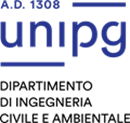Study-unit METODI E STRUMENTI DI SUPPORTO PER LE POLITICHE ENERGETICO-AMBIENTALI
| Course name | Environmental engineering |
|---|---|
| Study-unit Code | A003415 |
| Curriculum | Ambiente e energia |
| Lecturer | Francesco Fantozzi |
| CFU | 10 |
| Course Regulation | Coorte 2023 |
| Supplied | 2024/25 |
| Supplied other course regulation | |
| Type of study-unit | Obbligatorio (Required) |
| Type of learning activities | Attività formativa integrata |
| Partition |
LABORATORY OF ENERGY SYSTEMS
| Code | A002622 |
|---|---|
| CFU | 5 |
| Lecturer | Francesco Fantozzi |
| Lecturers |
|
| Hours |
|
| Learning activities | Affine/integrativa |
| Area | Attività formative affini o integrative |
| Sector | ING-IND/09 |
| Type of study-unit | Obbligatorio (Required) |
| Language of instruction | Italian |
| Contents | Residual energy resources and their characterization. Technologies for energy transition and circular economy. Biofuels. Atmospheric emission abatement techniques. Mass, energy and mission balances with commercial software. |
| Reference texts | Slides - Deep dive material - provided by prof. |
| Educational objectives | Understanding the availability and characteristics of residual resources for energy purposes. Learning experimental analysis techniques in the lab. Understanding the operation of technologies for energy transition and circular economy including visits to existing plants. Conducting preliminary plant design through mass and energy balances. Learning the operation of a commercial software (ASPEN or SimaPro). Practical experimental or numerical or design application to a real case. |
| Prerequisites | Basic knowledge of thermodynamics and energy conversion systems |
| Teaching methods | Lectures - laboratory practice - plant visits - software simulation |
| Other information | na |
| Learning verification modality | Experimental work or numerical analysis or design case - Drafting and discussion of an executive report on the work performed. |
| Extended program | Residual energy resources and their characterization (Ultimate and Proximate analysis, Heating Value). Technologies for energy transition and circular economy (gasification, pyrolysis, combustion, anaerobic digestion, Fischer-Tropsch). Biofuels and biofuels (biodiesel, bioethanol, biomethane and biogas, HVO, biochar). Atmospheric emission abatement techniques (NOx, SOx, Trace elements e metalli, Cloro e Diossine, VOC e PM). Mass, energy and mission balances with commercial software (Aspen/SimaPro). |
| Obiettivi Agenda 2030 per lo sviluppo sostenibile | 7-11-12-13 |
ENERGY PLANNING
| Code | A002670 |
|---|---|
| CFU | 5 |
| Lecturer | Giorgio Baldinelli |
| Lecturers |
|
| Hours |
|
| Learning activities | Affine/integrativa |
| Area | Attività formative affini o integrative |
| Sector | ING-IND/10 |
| Type of study-unit | Obbligatorio (Required) |
| Language of instruction | Italian |
| Contents | The global energy-environment framework. The traditional energy sources. Energy markets. Interactions between energy systems and the environment. Energy planning. |
| Reference texts | Lecture notes will be distributed by the teacher. |
| Educational objectives | The primary objective of the module is to provide students with the tools to learn about issues related to the traditional energy sources, their impact on the environment and how to manage their planning. |
| Prerequisites | Applied physics. |
| Teaching methods | The course is organised with classroom lectures on all treated subjects. Furthermore, interactive moments in groups will be organised for a better understanding of the dynamics linked to energy policy issues. |
| Other information | Attendance to the classes is optional but strongly advised. |
| Learning verification modality | The exam is oral and it consists of a discussion of no longer than 30 minutes. The exam aims to ascertain: i) the level of knowledge of the theoretical-methodological contents of the course ii) the level of competence in exposing the issues related to energy supply iii) autonomy of judgment in proposing the most appropriate approach for each area. The oral test also aims to verify the student's ability to express the themes proposed by the Commission, and to support a dialectical relationship during the discussion. For information on support services for students with disabilities and/or DSA, visit the page http://www.unipg.it/disabilita-e-dsa. |
| Extended program | The global and national energy framework. Global pollution. International treaties for environmental protection. The coal. The gas. Oil. Nuclear energy. Electricity market. Gas market. Economic indicators. Incentives. Air pollution of energy systems. Secondary pollutants and emission sources. Water and thermal pollution of energy systems. Pollution by E.M.F. . Municipalities energy planning. Examples of municipalities energy planning. Sustainable Energy Action Plans. |


